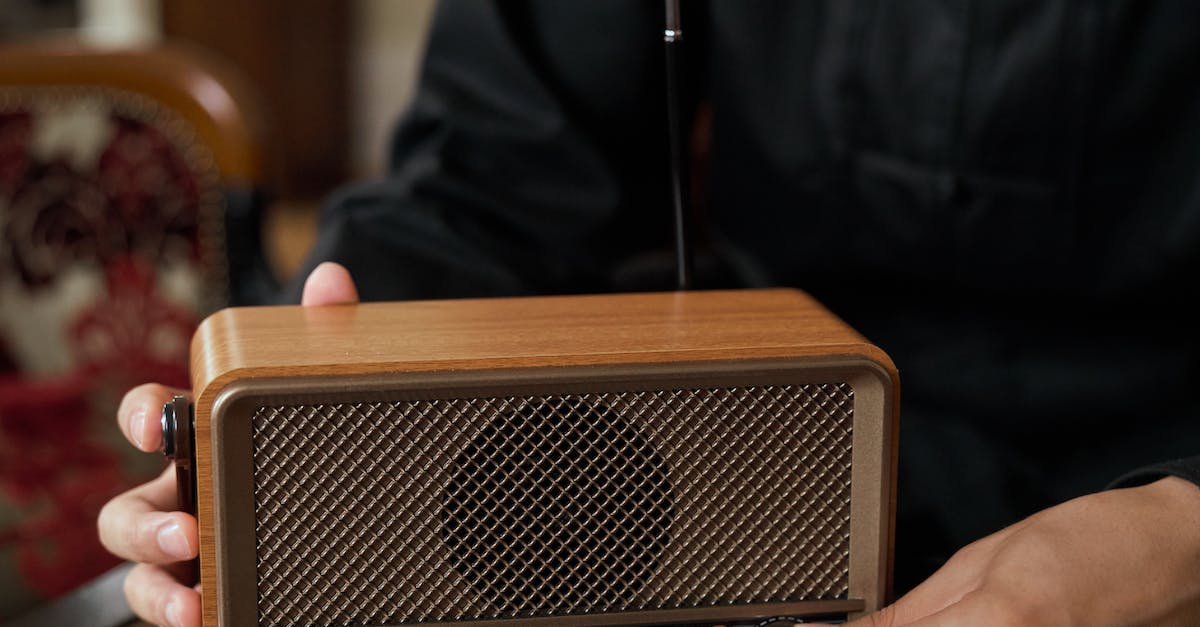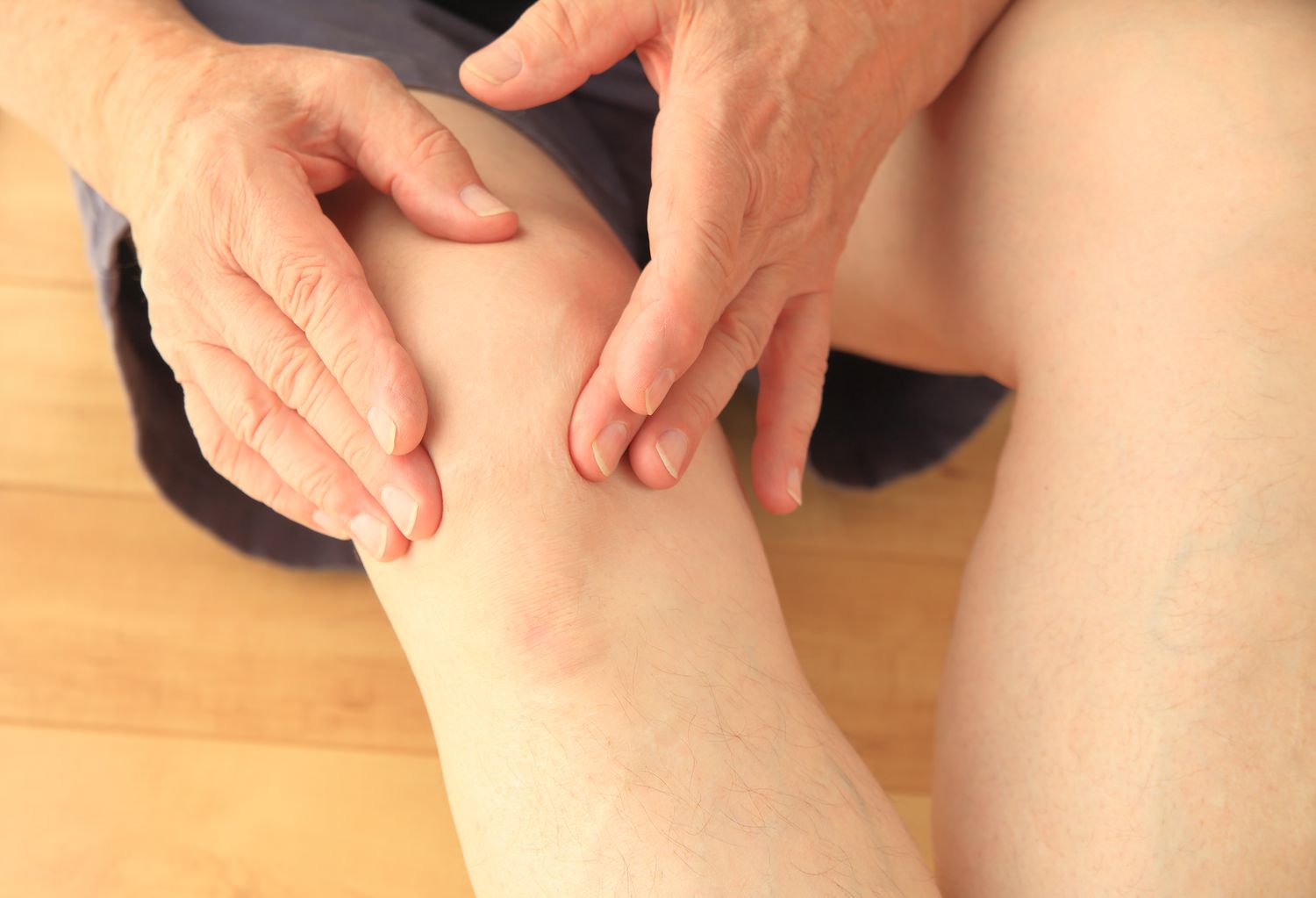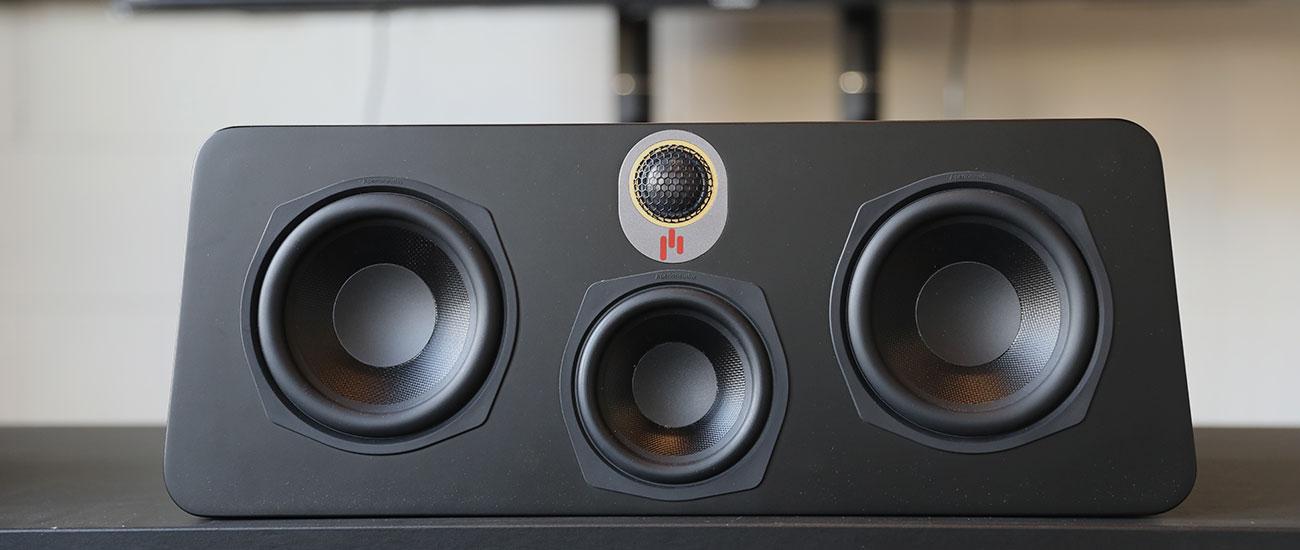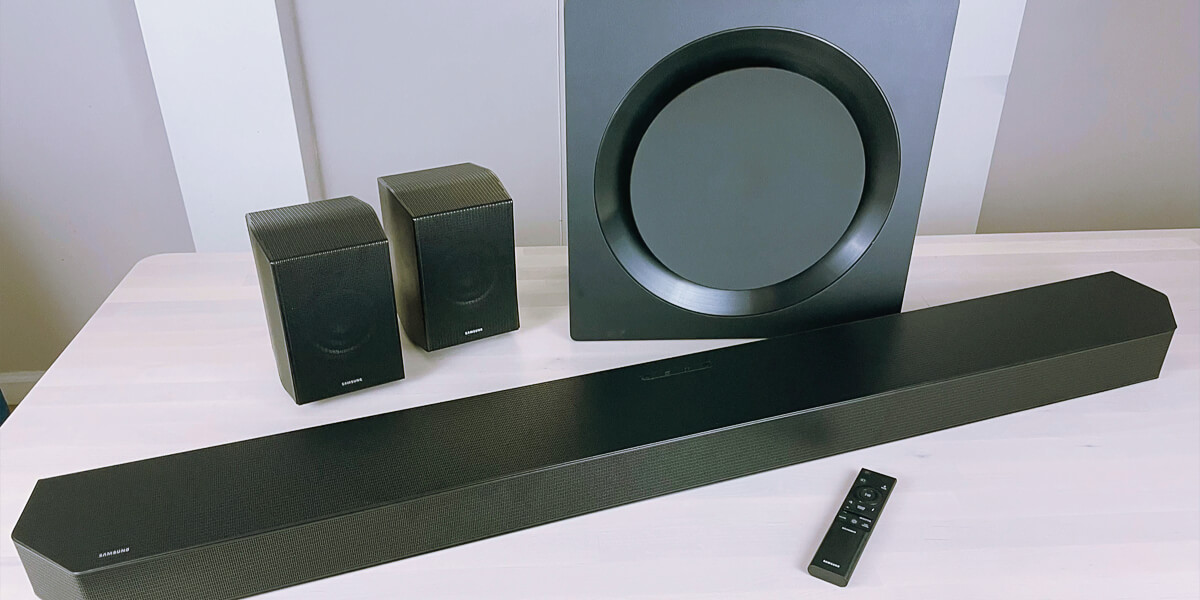Home>Production & Technology>Sound>Why Does My Ear Sound Like The Ocean


Sound
Why Does My Ear Sound Like The Ocean
Published: December 18, 2023
Discover the reasons behind why your ear may sound like the ocean and find out how to address this issue. Get expert advice and learn about potential treatments.
(Many of the links in this article redirect to a specific reviewed product. Your purchase of these products through affiliate links helps to generate commission for AudioLover.com, at no extra cost. Learn more)
Table of Contents
Introduction
Have you ever experienced the puzzling sensation of hearing the sound of the ocean in your ear? It can be quite unsettling and can disrupt your daily activities. This phenomenon is not uncommon and can have various causes. In this article, we will explore why your ear may sound like the ocean and delve into the potential reasons behind it.
Imagine yourself in a quiet room, trying to concentrate on a task, when suddenly you hear a faint sound reminiscent of crashing waves. You look around, perplexed, only to realize that the sound is coming from within your own ear. This ocean-like sound, also known as “rushing” or “roaring” in the ear, can manifest as a continuous noise or intermittent bursts.
The experience can be disconcerting, leading to feelings of anxiety, frustration, and confusion. However, understanding the underlying causes can help alleviate these concerns and guide you towards the appropriate remedies.
It is important to note that experiencing ocean-like sounds in the ear is typically a symptom rather than a standalone condition. Therefore, it is crucial to identify the root cause in order to effectively manage and treat the issue.
In the following sections, we will delve into the potential causes behind this phenomenon. From Eustachian tube dysfunction to conditions like Ménière’s disease and tinnitus, we will explore the various factors that can contribute to the ocean-like sounds in your ear. Additionally, we will discuss home remedies and medical treatments that may offer relief.
Before we dive into the specifics, it is worth noting that while self-care measures and home remedies can provide temporary relief, it is important to consult a healthcare professional if you experience persistent or worsening symptoms. They will be able to provide a proper diagnosis and recommend appropriate treatment options.
Understanding the Phenomenon
To better understand why your ear may sound like the ocean, it is important to grasp the underlying mechanisms that contribute to this phenomenon. Our ears are complex organs that are responsible for not only hearing but also maintaining our sense of balance. When something disrupts the normal functioning of the ear, it can result in unusual sounds such as the ocean-like sensation.
One common factor that can contribute to the ocean-like sounds in the ear is an issue with the Eustachian tube. The Eustachian tube is a narrow passage that connects the middle ear to the back of the throat. Its primary function is to regulate the pressure within the middle ear, ensuring that it remains balanced with the external environment. When there is a blockage or dysfunction in the Eustachian tube, it can create a sensation of fullness or pressure in the ear, accompanied by unusual sounds like the crashing waves of the ocean.
Certain medical conditions can also lead to the ocean-like sounds in your ear. Ménière’s disease, for example, is a disorder that affects the inner ear and can cause episodes of vertigo, hearing loss, and tinnitus. Tinnitus, a condition characterized by the perception of ringing or buzzing sounds in the ears, can also manifest as ocean-like noises.
Another potential cause of the ocean-like sounds in the ear is sinus congestion. When the sinuses become inflamed or blocked, it can affect the normal functioning of the Eustachian tube, leading to a buildup of pressure and resulting in a variety of symptoms, including the ocean-like sensation.
Earwax blockage can also contribute to the phenomenon. When excess earwax accumulates in the ear canal, it can interfere with the efficient transmission of sound and cause abnormal auditory sensations, including the sound of the ocean.
While understanding the possible causes is a crucial step, it is important to remember that each individual’s situation is unique. It is always recommended to consult a healthcare professional for an accurate diagnosis and appropriate treatment plan.
Possible Causes
There are several potential causes for why your ear may sound like the ocean. These causes range from relatively harmless issues to more serious underlying conditions. Here, we will explore some of the common factors that can contribute to this phenomenon:
- Eustachian Tube Dysfunction: Dysfunction of the Eustachian tube, which connects the middle ear to the back of the throat, can result in the sensation of the ocean-like sound. When the Eustachian tube is blocked or fails to open and close properly, it can lead to pressure imbalances in the middle ear, causing unusual sounds.
- Ménière’s Disease: This inner ear disorder can cause episodes of vertigo, hearing loss, tinnitus, and pressure changes in the ear. The abnormal fluid buildup in the inner ear can create the sensation of the ocean-like sound.
- Tinnitus: Tinnitus, characterized by the perception of ringing, buzzing, or hissing sounds in the ear, can manifest as ocean-like noises. It can be caused by various factors such as exposure to loud noises, age-related hearing loss, ear infections, or certain medications.
- Sinus Congestion: Sinus congestion due to allergies, colds, or sinus infections can cause blockage in the Eustachian tube. This blockage can result in pressure imbalances in the middle ear, leading to the sensation of ocean-like sounds.
- Earwax Blockage: Excessive accumulation of earwax can block the ear canal, leading to changes in sound transmission and resulting in abnormal auditory sensations, including the sound of the ocean.
It is important to note that these are just some of the possible causes, and individual experiences may vary. If you are unsure about the cause of your ocean-like sounds in the ear, it is recommended to consult with a healthcare professional for a proper examination and diagnosis.
Identifying the underlying cause is crucial in determining the appropriate treatment plan. While some individuals may find relief with self-care measures and home remedies, others may require medical intervention. In the next sections, we will explore both home remedies and medical treatments that can alleviate the ocean-like sounds in the ear.
Eustachian Tube Dysfunction
Eustachian tube dysfunction (ETD) is a common cause of the ocean-like sounds in the ear. The Eustachian tube is a narrow passage that connects the middle ear to the back of the throat. Its primary function is to regulate the pressure within the middle ear, ensuring that it remains balanced with the external environment. When the Eustachian tube fails to open and close properly, it can lead to a buildup of pressure and fluid in the middle ear, resulting in various symptoms including the sensation of ocean-like sounds.
There are several factors that can contribute to Eustachian tube dysfunction. Some common causes include:
- Blockage: When there is a blockage in the Eustachian tube, whether due to inflammation, mucus, or swelling, it can disrupt the normal flow of air and fluid. This blockage can result from allergies, sinus infections, or respiratory infections.
- Anatomy: In some cases, individuals may have naturally narrower or more easily collapsible Eustachian tubes, making them more prone to dysfunction. This is often seen in children and can contribute to recurrent ear infections.
- Pressure Changes: Rapid pressure changes, such as those experienced during air travel or scuba diving, can cause temporary Eustachian tube dysfunction. The sudden change in pressure can prevent the Eustachian tube from equalizing the pressure effectively, leading to discomfort and abnormal sounds in the ear.
- Swelling: Inflammation and swelling of the Eustachian tube can occur due to allergies, respiratory infections, or irritants. This swelling can impede the proper functioning of the Eustachian tube, resulting in the sensation of ocean-like sounds.
Treatment for Eustachian tube dysfunction focuses on relieving the blockage or inflammation and restoring proper functioning. Some self-care measures that may help include:
- Swallowing and Yawning: These actions can help open up the Eustachian tube and equalize pressure in the middle ear.
- Nasal Decongestants: Over-the-counter nasal decongestant sprays or oral medications can help reduce nasal congestion and swelling, promoting better Eustachian tube function.
- Steam Inhalation: Inhaling steam from a bowl of hot water or using a humidifier can help alleviate nasal congestion and open up the Eustachian tube.
If self-care measures do not provide sufficient relief, a healthcare professional may recommend medical interventions such as nasal steroid sprays, antihistamines, or in some cases, surgical procedures to address persistent Eustachian tube dysfunction.
If you are experiencing ocean-like sounds in your ear and suspect Eustachian tube dysfunction, it is important to consult with a healthcare professional for an accurate diagnosis and appropriate treatment options tailored to your specific needs.
Ménière’s Disease
Ménière’s disease is a disorder of the inner ear that can cause episodes of vertigo, hearing loss, tinnitus, and a sensation of fullness or pressure in the affected ear. While the exact cause of Ménière’s disease is not fully understood, it is believed to be related to fluid buildup in the inner ear. This build-up of fluid can lead to the sensation of ocean-like sounds in the ear.
The main symptoms of Ménière’s disease include:
- Vertigo: Episodes of dizziness or a spinning sensation that can last anywhere from minutes to hours. These vertigo episodes can be debilitating and significantly impact daily activities.
- Hearing Loss: Ménière’s disease can cause temporary or permanent hearing loss in the affected ear. The hearing loss is typically fluctuating and may improve between episodes of vertigo.
- Tinnitus: Tinnitus, characterized by the perception of ringing, buzzing, or hissing sounds in the ear, is a common symptom of Ménière’s disease. This tinnitus can take the form of ocean-like sounds or other abnormal auditory sensations.
- Pressure or Fullness: Many individuals with Ménière’s disease report a sensation of pressure or fullness in the affected ear. This feeling may be accompanied by a muffled or blocked sensation.
The exact cause of Ménière’s disease is not yet fully understood, but a combination of factors is believed to play a role. These factors may include fluid abnormalities in the inner ear, problems with the drainage of fluid, viral infections, genetic predisposition, or autoimmune reactions.
There is no cure for Ménière’s disease, but several treatment options aim to manage the symptoms and reduce their impact on daily life. These treatment approaches may include:
- Dietary Changes: Reducing salt intake and avoiding trigger foods like caffeine and alcohol may help alleviate symptoms.
- Medications: Medications like diuretics, anti-nausea drugs, and vestibular suppressants may be prescribed to manage vertigo and associated symptoms.
- Vestibular Rehabilitation Therapy: This type of therapy focuses on exercises that aim to improve balance and reduce the severity and frequency of vertigo episodes.
- Surgical Options: In severe cases where symptoms are not well-controlled by other methods, surgical interventions such as endolymphatic sac decompression or vestibular nerve sectioning may be considered.
If you suspect you may have Ménière’s disease, it is important to consult with a healthcare professional for a proper diagnosis and guidance on management strategies. They will be able to assess your specific symptoms, conduct necessary tests, and provide tailored recommendations to help manage the condition and improve your quality of life.
Tinnitus
Tinnitus is a condition characterized by the perception of sounds in the ears or head that have no external source. It can manifest as ringing, buzzing, whistling, clicking, or even ocean-like sounds. Tinnitus is not a disease itself, but rather a symptom of an underlying condition or a result of exposure to certain factors.
There are two main types of tinnitus: subjective and objective. Subjective tinnitus is the most common type, where only the person experiencing it can hear the sounds. Objective tinnitus, on the other hand, is rare and can be heard by an examiner through a stethoscope or other medical device.
The causes of tinnitus can vary and may include:
- Hearing Loss: Age-related hearing loss, exposure to loud noises, or damage to the auditory system can contribute to tinnitus. The brain may generate sounds to compensate for the lack of external auditory stimuli.
- Ear Infections: Infections of the ear, such as otitis media, can cause inflammation and fluid buildup, leading to tinnitus.
- Medications: Some medications, including certain antibiotics, antimalarial drugs, cancer medications, and high doses of aspirin, can increase the risk of developing tinnitus as a side effect.
- Earwax Blockage: Excessive earwax accumulation can cause pressure on the eardrum and affect sound perception, resulting in tinnitus.
- Trauma or Injury: Head or neck injuries can damage the auditory system, leading to the development of tinnitus.
- Stress and Anxiety: Emotional stress and anxiety can exacerbate tinnitus symptoms or make them more noticeable.
While there is no cure for tinnitus, there are several management strategies that can help alleviate its impact. These strategies may include:
- Hearing Aids: If hearing loss accompanies tinnitus, hearing aids can help amplify external sounds and reduce the perceived intensity of tinnitus.
- Sound Therapy: Using background noise, such as white noise machines, fans, or soothing music, can help mask the tinnitus sounds and provide relief.
- Cognitive Behavioral Therapy (CBT): CBT techniques can help individuals change their perception and emotional response to tinnitus, reducing its impact on daily life.
- Relaxation Techniques: Stress management techniques, such as deep breathing exercises, meditation, or yoga, can help reduce the impact of stress and anxiety on tinnitus symptoms.
- Tinnitus Retraining Therapy (TRT): TRT combines sound therapy with therapeutic counseling to help retrain the brain’s response to tinnitus, minimizing its negative effects.
If you are experiencing symptoms of tinnitus, it is recommended to consult with a healthcare professional who specializes in hearing and tinnitus management. They can assess your specific situation, identify any underlying causes, and provide appropriate guidance and treatment options to help manage your tinnitus effectively.
Sinus Congestion
Sinus congestion, often caused by allergies, colds, or sinus infections, can contribute to the sensation of ocean-like sounds in the ear. The sinuses are air-filled cavities located in the facial bones around the nose and eyes. When these sinuses become inflamed or congested, it can affect the normal functioning of the Eustachian tube, which connects the middle ear to the back of the throat. This disruption can lead to a buildup of pressure in the middle ear and result in the perception of abnormal sounds.
Common symptoms of sinus congestion include:
- Nasal Congestion: The feeling of stuffiness or blockage in the nose, making it difficult to breathe through the nostrils.
- Facial Pain or Pressure: Pain or pressure in the face, particularly around the sinuses, such as the forehead, cheeks, or between the eyes.
- Postnasal Drip: Excess mucus production that drains from the nose to the throat, causing a sensation of mucus running down the back of the throat.
- Sinus Headache: Headache typically localized in the frontal sinus area that worsens with bending forward or during changes in atmospheric pressure.
- Ear Fullness or Discomfort: Sinus congestion can lead to a feeling of fullness or pressure in the ears, sometimes accompanied by popping or crackling sounds.
To alleviate sinus congestion and reduce the associated ocean-like sounds in the ear, several home remedies can be helpful:
- Steam Inhalation: Inhaling steam from a bowl of hot water or using a humidifier can help moisturize the nasal passages and loosen congestion, facilitating drainage.
- Nasal Irrigation: Rinsing the nasal passages with a saline solution can help clear out mucus and reduce congestion. This can be done using a neti pot or a saline nasal spray.
- Warm Compresses: Applying warm compresses to the face over the sinuses can help relieve pain and pressure.
- Stay Hydrated: Drinking plenty of fluids can help thin mucus and promote better drainage.
- Avoid Triggers: If allergies are contributing to sinus congestion, it is important to identify and avoid allergens that trigger symptoms, such as pollen, dust, or pet dander.
If home remedies are not providing sufficient relief, healthcare professionals may recommend additional treatments, such as over-the-counter decongestants or nasal corticosteroids to reduce inflammation and congestion. In some cases, antibiotics may be prescribed to treat bacterial sinus infections.
If you are experiencing persistent or worsening sinus congestion, seek medical attention to determine the underlying cause and receive appropriate treatment. It is important to address sinus congestion promptly to prevent complications and alleviate the associated ocean-like sounds in the ear.
Earwax Blockage
Earwax, also known as cerumen, is a naturally occurring substance produced by the glands in the ear canal. Its primary purpose is to protect the ear by trapping dust, debris, and harmful microorganisms. Normally, earwax gradually moves from the inner ear to the ear opening, where it naturally dries up and falls out. However, in some cases, the earwax can accumulate and lead to a blockage, causing discomfort and affecting hearing. Earwax blockage can also contribute to the sensation of ocean-like sounds in the ear.
Earwax blockage can occur for several reasons:
- Natural Earwax Production: Some individuals naturally produce more earwax than others, making them more prone to blockages.
- Improper ear cleaning: Using cotton swabs or any other objects to clean inside the ear can push the earwax further into the ear canal, causing a blockage.
- Narrow Ear Canal: Some individuals may have narrower ear canals, leading to a higher likelihood of earwax blockage.
- Excessive Earwax Production: Certain factors, such as stress or anxiety, can stimulate the glands in the ear canal to produce more earwax than necessary, resulting in blockages.
The symptoms of earwax blockage can vary but may include:
- Ear Fullness: A feeling of pressure or fullness in the affected ear.
- Hearing Loss: Earwax blockage can affect the transmission of sound and result in temporary hearing loss.
- Tinnitus: Earwax blockage can cause or exacerbate tinnitus, leading to the perception of ocean-like sounds or other abnormal auditory sensations.
- Ear Discomfort: Individuals with earwax blockage may experience ear pain, itching, or a sense of the ear being plugged.
It is important to refrain from attempting to remove earwax yourself using objects like cotton swabs, as this can push the wax further into the ear canal and potentially cause injury. Instead, consult a healthcare professional who can safely remove the blockage.
Healthcare providers may use various methods to remove earwax blockages, including:
- Ear Irrigation: Flushing the ear canal with water or a saline solution to dislodge and remove the earwax.
- Manual Removal: Using specialized instruments, such as curettes or suction devices, to gently remove the earwax blockage.
- Earwax Softening: Using ear drops to soften the earwax, making it easier to remove.
Preventive measures to avoid earwax blockage include keeping the ears clean and dry, avoiding the use of cotton swabs or other objects inside the ear, and seeking medical attention if experiencing symptoms of earwax buildup.
If you suspect you have an earwax blockage or are experiencing ocean-like sounds in your ear, consult a healthcare professional for proper evaluation and safe removal of the earwax blockage.
Remedies for Ocean-like Sounds in the Ear
Experiencing ocean-like sounds in the ear can be disruptive and bothersome, but there are several remedies that may help alleviate the sensation. These remedies can be categorized into two main approaches: home remedies and medical treatments. While home remedies offer self-care measures that can provide temporary relief, medical treatments offer more targeted interventions for long-term management. It is important to note that the appropriate remedy may vary depending on the underlying cause of the ocean-like sounds.
Home Remedies:
1. Identify and Manage Triggers: If certain triggers, such as loud noises or specific foods, contribute to the ocean-like sounds, try to identify and avoid them. This may help minimize the frequency or intensity of the episodes.
2. Practice Stress Management: High levels of stress and anxiety can exacerbate the perception of abnormal sounds. Engage in stress reduction techniques such as deep breathing exercises, meditation, or yoga to help manage stress and promote relaxation.
3. Over-the-Counter Ear Drops: Some over-the-counter ear drops may help soften and loosen earwax, offering temporary relief if earwax blockage is causing the ocean-like sounds. Be sure to follow the instructions on the product packaging and consult a healthcare professional if symptoms persist.
Medical Treatments:
1. Consult a Healthcare Professional: If the ocean-like sounds are persistent or significantly affect your quality of life, it is important to consult a healthcare professional. They can assess your symptoms, conduct necessary tests, and provide an accurate diagnosis and appropriate treatment options.
2. Medication: Depending on the underlying cause of the ocean-like sounds, such as Eustachian tube dysfunction or sinus congestion, a healthcare professional may prescribe medications to alleviate symptoms. These may include nasal decongestants, antihistamines, or antibiotics for sinus infections.
3. Hearing Aids: If hearing loss accompanies the ocean-like sounds, wearing hearing aids can help amplify external sounds and improve overall hearing, potentially reducing the perception of abnormal sounds.
4. Tinnitus Retraining Therapy (TRT): TRT combines sound therapy and counseling to help retrain the brain’s response to the ocean-like sounds. This comprehensive approach aims to reduce the negative emotional impact of tinnitus and minimize its perception.
5. Surgical Interventions: In severe cases where other treatments have not provided relief, surgical interventions may be considered. Procedures such as Eustachian tube dilation, earwax removal, or surgical repair of structural abnormalities may be recommended by a healthcare professional.
It is important to note that these remedies should be implemented under the guidance of a healthcare professional. They can evaluate your specific condition, recommend appropriate remedies, and monitor your progress. Remember, what works for one person may not work for another, so it is essential to find the right solution for your unique situation.
Home Remedies
When experiencing ocean-like sounds in the ear, there are several home remedies you can try to help alleviate the sensation. These self-care measures can provide temporary relief and may be particularly helpful for mild cases or when the underlying cause is not severe. Here are some home remedies that you can consider:
1. Identify and Manage Triggers: Pay attention to any triggers that seem to worsen the ocean-like sounds. For example, if exposure to loud noises exacerbates the sensation, try to minimize your exposure or wear ear protection when in noisy environments.
2. Practice Stress Management Techniques: Stress and anxiety can enhance the perception of abnormal sounds. Engaging in relaxation techniques such as deep breathing exercises, meditation, or yoga can help reduce stress levels and alleviate symptoms.
3. Earwax Softening: If earwax buildup is a suspected cause, you can try using over-the-counter ear drops to soften the earwax. Follow the instructions on the product packaging, gently tilt your head to the side, and administer the drops into the affected ear. Allow the drops to work for a few minutes before gently rinsing the ear with warm water or using a bulb syringe to flush out the softened earwax. Avoid using cotton swabs as they can push the wax further into the ear canal.
4. Warm Compress: Applying a warm compress to the affected ear can help alleviate discomfort and promote better blood circulation, which may reduce the sensation of ocean-like sounds. Use a clean cloth soaked in warm (not hot) water and place it against the ear for 10 to 15 minutes, repeating as needed for relief.
5. Stay Hydrated: Drinking plenty of fluids, especially water, can help thin mucus and promote better sinus drainage. Adequate hydration can contribute to overall ear and sinus health.
6. Use a Humidifier: Dry air can irritate the nasal passages and contribute to sinus congestion. Using a humidifier in your living space can help add moisture to the air, reducing the likelihood of congestion and promoting better sinus function.
Remember, these home remedies are not meant to replace professional medical advice. If your symptoms persist, worsen, or are accompanied by severe pain, fever, or other concerning symptoms, it is important to consult a healthcare professional for further evaluation and appropriate treatment.
Each individual may respond differently to home remedies, so it may take some trial and error to find the most effective approach for your specific situation. Listen to your body, and if a particular remedy worsens your symptoms, discontinue its use and consult with a healthcare professional for guidance.
Medical Treatments
If home remedies do not provide sufficient relief for the ocean-like sounds in the ear, or if the underlying cause of the symptoms requires more targeted interventions, medical treatments may be necessary. It is important to consult with a healthcare professional to accurately diagnose the underlying cause and determine the most appropriate medical treatment options. Here are some medical treatments that may be recommended:
1. Consultation with a Healthcare Professional: Schedule an appointment with a healthcare professional who specializes in ear, nose, and throat (ENT) conditions. They will evaluate your symptoms, perform necessary examinations, and recommend appropriate medical treatment options.
2. Medication: Depending on the underlying cause of the ocean-like sounds, medications may be prescribed to alleviate symptoms. For example, if sinus congestion is contributing to the sensation, nasal decongestants, antihistamines, or corticosteroids may be prescribed to reduce inflammation and improve sinus drainage. Antibiotics may also be necessary if there is an underlying bacterial infection.
3. Hearing Aids: In cases where hearing loss accompanies the ocean-like sounds, hearing aids may be recommended. Hearing aids can amplify external sounds and improve overall hearing, potentially reducing the perception of abnormal sounds.
4. Tinnitus Retraining Therapy (TRT): TRT is a therapeutic approach that combines sound therapy and counseling. It aims to retrain the brain’s response to the ocean-like sounds and reduce the negative emotional impact of tinnitus. TRT involves the use of low-level background noises or specific sound generators to help mask the perception of abnormal sounds and promote habituation.
5. Surgical Interventions: In severe cases where other treatments have not provided adequate relief or when structural abnormalities are present, surgical interventions may be considered. Procedures such as Eustachian tube dilation, earwax removal, or surgical repair of anatomical issues may be recommended by a healthcare professional.
It is important to follow the guidance of a healthcare professional and undergo any recommended medical treatments under their supervision. They will determine the most suitable treatment options based on your specific condition, taking into account factors such as the underlying cause, severity of symptoms, and individual health considerations.
Remember, everyone’s situation is unique, and what works for one person may not work for another. It’s essential to have a customized treatment plan that addresses your specific needs. Stay in close communication with your healthcare professional to monitor your progress and make any necessary adjustments to your treatment approach.
When to Consult a Doctor
If you are experiencing ocean-like sounds in the ear, it is important to know when it is necessary to consult a doctor. While some cases may be temporary or benign, others may require medical attention to properly diagnose and manage the underlying cause. Here are some situations in which you should consider seeking medical advice:
1. Persistent Symptoms: If the ocean-like sounds in your ear persist for an extended period, despite trying home remedies or self-care measures, it is advisable to consult a doctor. Prolonged symptoms may indicate an underlying condition or require further investigation.
2. Worsening Symptoms: If the intensity or frequency of the ocean-like sounds increases over time, or if you notice additional symptoms such as severe pain, dizziness, or significant hearing loss, it is important to seek medical attention promptly.
3. Impaired Daily Activities: If the ocean-like sounds are interfering with your ability to carry out daily activities, concentrate, or causing significant distress or anxiety, it is recommended to consult a healthcare professional for a proper evaluation and guidance.
4. Associated Symptoms: If the ocean-like sounds are accompanied by other concerning symptoms such as fever, severe ear pain, bleeding from the ear, or sudden hearing loss, it may indicate a more serious condition, and it is crucial to seek immediate medical attention.
5. Recurrent Episodes: If you experience recurring episodes of ocean-like sounds, it is recommended to consult a healthcare professional. They can assess your condition and determine the underlying cause for appropriate management and prevention of future episodes.
6. Existing Health Conditions: If you have pre-existing health conditions, such as Meniere’s disease, chronic sinusitis, or a history of ear infections, it is important to consult a healthcare professional to ensure proper management of your condition and to address any changes in symptoms.
A healthcare professional, such as an ear, nose, and throat (ENT) specialist or an audiologist, can conduct a thorough examination, perform necessary tests, and provide an accurate diagnosis. They will tailor a treatment plan specific to your needs, considering your medical history and addressing any underlying conditions contributing to the ocean-like sounds in your ear.
Remember, it is always better to seek professional medical advice to ensure proper diagnosis and timely intervention rather than self-diagnose or delay seeking help. A healthcare professional will guide you in managing your symptoms effectively and enhancing your quality of life.
Conclusion
Ocean-like sounds in the ear can be a perplexing and disruptive sensation, but they are often a symptom rather than a standalone condition. It is crucial to understand the potential causes behind these sounds and seek appropriate remedies to alleviate the discomfort they may cause.
Various factors can contribute to ocean-like sounds in the ear, including Eustachian tube dysfunction, Ménière’s disease, tinnitus, sinus congestion, or earwax blockage. Identifying the underlying cause is key to guiding treatment options for symptom relief.
Home remedies, such as stress management techniques, identifying triggers, and using over-the-counter ear drops or warm compresses, can provide temporary relief. However, seeking medical attention is advised if symptoms persist, worsen, or are accompanied by severe pain, hearing loss, or other concerning symptoms.
Medical treatments, including medication, hearing aids, tinnitus retraining therapy (TRT), or surgical interventions, may be recommended by healthcare professionals to address the underlying causes and alleviate the ocean-like sounds.
Remember, each individual’s situation is unique, and what works for one person may not work for another. It is important to consult with a healthcare professional for an accurate diagnosis and personalized treatment plan.
In conclusion, ocean-like sounds in the ear can be bothersome, but with proper understanding and the appropriate treatments, they can be managed effectively. By working closely with healthcare professionals to identify the underlying cause and implementing targeted remedies, individuals can find relief and improve their overall ear health and well-being.











